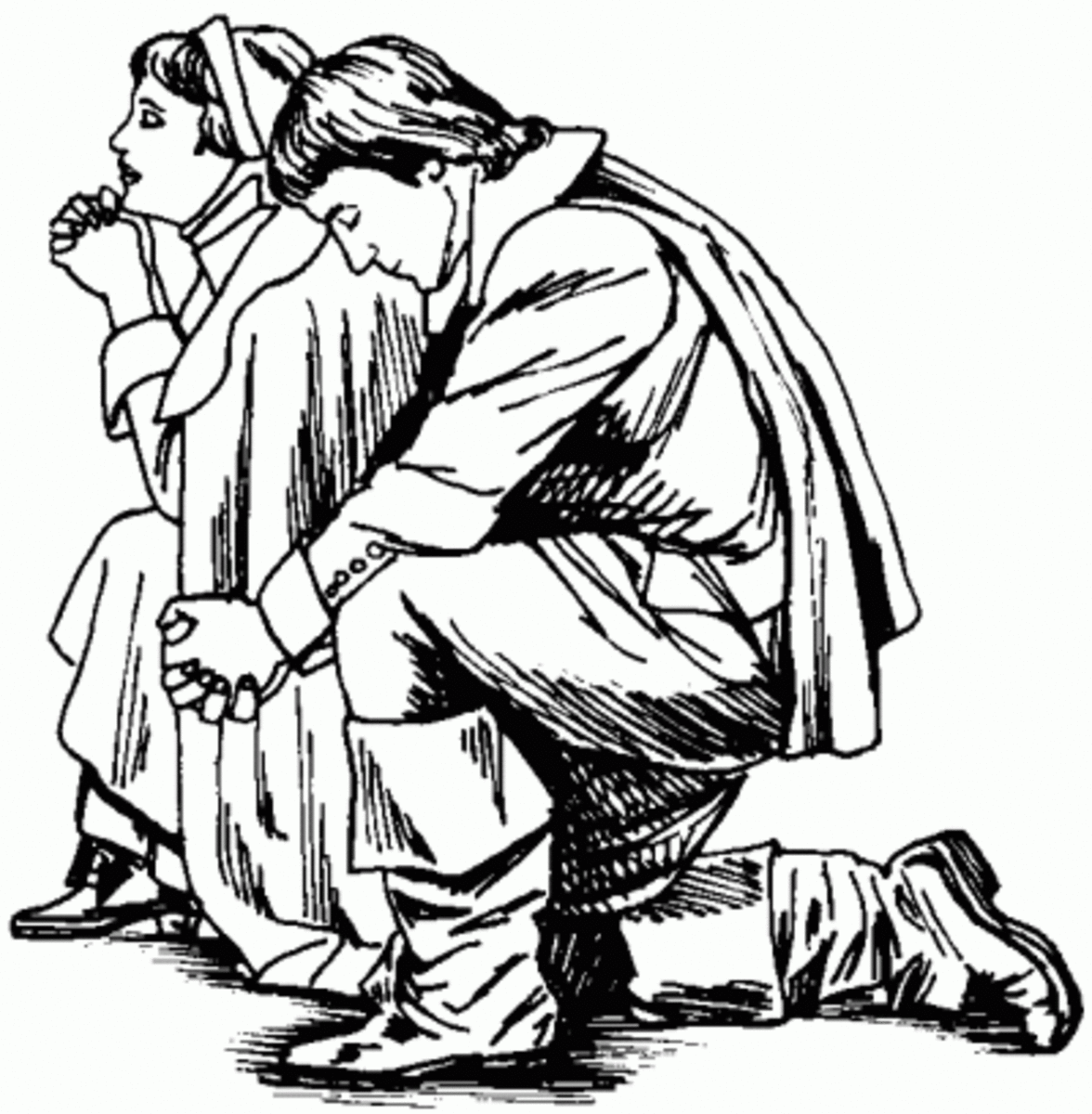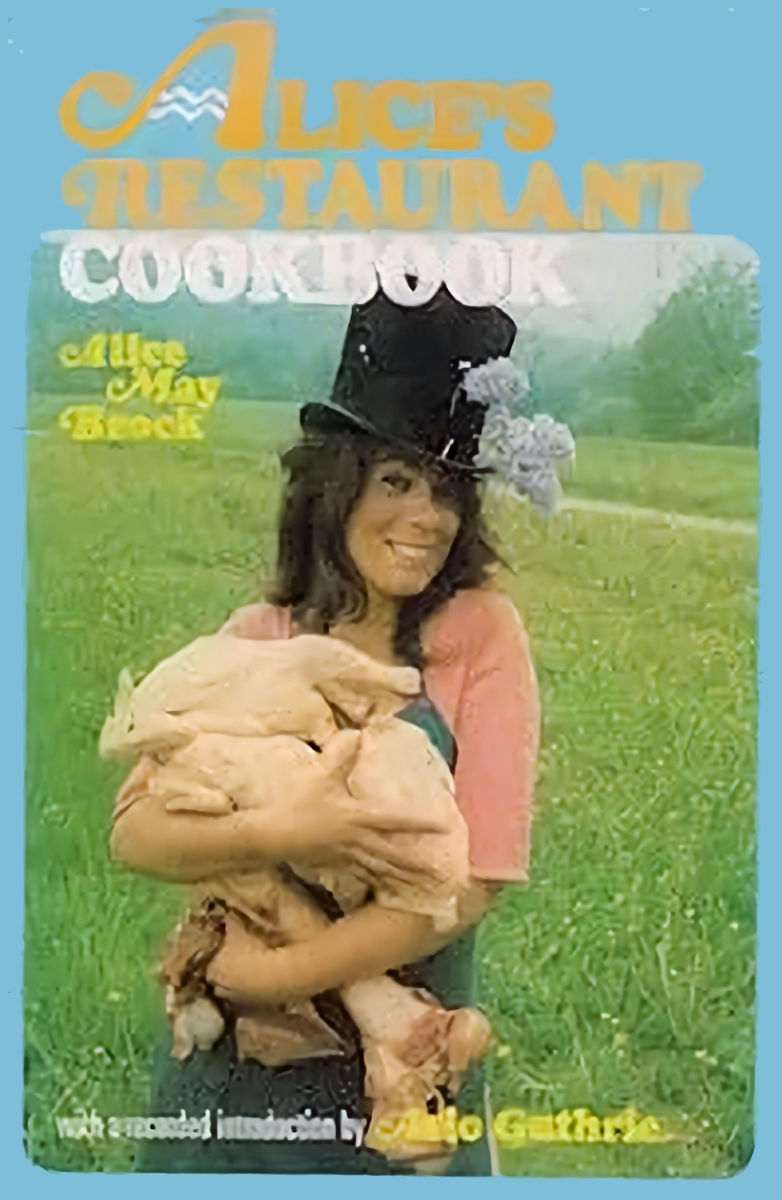Lincoln's Thanksgiving Day Proclamation
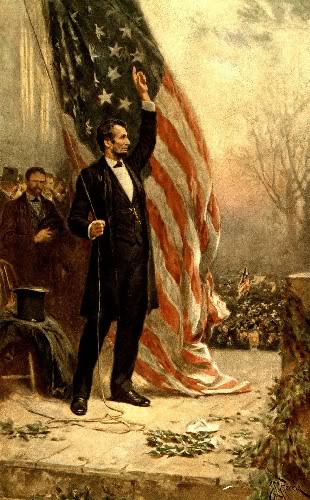
Making Thanksgiving a Holiday
In the USA, the last Thursday of November is reserved as a holiday for Thanksgiving. In modern times we get together with our families and friends, server lots of terrific food and many times say a short prayer or give thanks for what we have.
What people don't know is the idea that we reserve the last Thursday in November was started by a woman named Sara Hale. In 1846, Hale began her campaign to make Thanksgiving a recognized day of thanks. Then some 17 years late Lincoln made the proclamation to recognized a day of Thanksgiving.
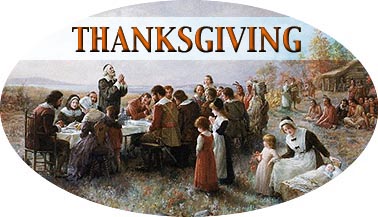
Original Thanksgiving
Now in Lincoln's proclamation, there was never any mention of the original Thanksgiving as taught in the schools but we do know it had its roots in giving thanks for the blessings bestowed on those original settlers.
The simplified version is the Pilgrims were so thankful for having their new friends the Indians teach them how to farm and survive they decided to hold a feast. When their new friends showed up with very large families, it became clear that there would not be enough food an the local natives went an brought back more food for the 3 day feast.
While this is cheery and simplified I think you have to look deeper into the story for, as Paul Harvey used to say, the rest of the story. The rest of the story comes in 3 parts, first the origins of the pilgrim experiment, next the miracle of Tisquantum and then the real message of thanksgiving.
Part 1. - The Pilgrim Experiment
According to the book by Dr. Azel Ames, The Mayflower and Her Log, the original compact with the merchants who sponsored the Pilgrims called for a system of equal shares from a common store...meaning everyone put in to the common store and each were allotted equal shares. Of course that was after it was split to pay off the merchants. It also meant that everything was owned by for the common good. All the houses built, everything produced was for the common good. Nobody owned anything.
While noble in it's intention, the shared fruits of labor did not bear out great abundance in the first harvest. It was good and unlike the previous winter, they had sufficient stores for the coming winter. These surviors of the first winter had much to be thankful for, so they hosted the local natives in a feast that lasted 3 days to give thanks to God for what they had. There was much to be thankful for including new and unexpected friendships.
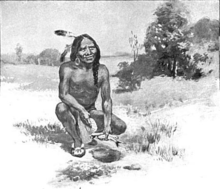
Part 2 - The Miracle of Tisquantum
Tisquantum known as Squanto, was an Indian native to the Plymouth region. Shortly after the Pilgrims landed and started to set up, another native named Samoset, who spoke very little English greeted them and fetch Squanto. Squanto spoke English and as a native of the area was filled with knowledge on how to survive the coastal winters. So how was it that a person, native to the Plymouth area, could speak English to these new settlers should come to be at the very place and time he was needed most?
To explain this you have to look back at the life of Squanto. As a young man he was kidnapped by a wicked ships captain named Thomas Hunt. Hunt lured these men to his boat and took them to Spain to be sold as slaves. When in Spain, some local Monks got wind of this plan and bought Squanto out of slavery. Squanto worked for them for a few years and was eventually set free. He made his way to England where he got work as a guide to some traders looking to trade with Newfoundland. His knowledge of local cultures and ability to be an interpreter made him valuable to these traders.
Eventually he worked his way to a ship that brought him back to his home. Unfortunately for Squanto, when he returned his village and people had been wiped out by disease. Nobody had survived. He took up residence with another local tribe until the pilgrims arrived. When the Pilgrims arrived, Squanto took up residence with these new explorers. He showed them how to survive and live in this new land. He helped negotiate with the local natives, telling them which ones to be wary of and which ones they could trade with.
Now think about the miracle of this meeting. A native of the lands, captured years prior, learns English and makes his way back home with no family or tribe left. He is exactly what these new Pilgrims needed because they were ill prepared of their new home. Clearly heaven sent, these Pilgrims must have recognized that providence was smiling upon them for this man to be with them at this time and place. Thanking God for this blessing must have been on their hearts and minds constantly.
Part 3 - The real message of the Thanksgiving Holiday
What is often overlooked in this first Thanksgiving is the reverence to God and the thanks for all the blessings that had been bestowed. These Pilgrims had sought to practice religion as they desired, not as the King of England had desired. They left their home land to secure this freedom. They endured many hardships including sunken ships, a long hard journey across the sea, losing almost half their number in the first winter, surviving starvation, sickness, exposure and more.
They were still indebted to the merchants who sponsored them but within their first year, they were now at a point where they had shelter and stores to survive the winter. They were thankful to God for all the blessings bestowed to them and wanted to share this grace with some of the local peoples. Thus a day of thanksgiving was declare. A 3 day feast ensued. The gratitude and thanks for all the blessings they had been given by God was at the center of this feast. This thread of thanks is what ties together the Pilgrims with Lincoln.
Lincoln's Proclaimation
With Hale's letter in hand, in 1863, Lincoln, delivered the proclamation written by Secretary of State William Seward, declaring the last Thursday in November to be Thanksgiving. In this proclamation, it acknowledged all the problems facing the country. A civil war, with a cost not only in lives but in wealth and resources spent on destruction and the making of war.
Yet even in these extraordinarily trying times, he found reasons to be thankful. These blessings bestowed to the country by God were the focus of the Thanksgiving proclamation. This day was to be set aside for us to remember all the blessings we had been given by the grace of God.
Lessons from Lincoln & the Pilgrims
There is a common thread between Lincoln's Proclamation and the Pilgrim's first Thanksgiving, both were in the midst of some trying and difficult times. Circumstances were less than ideal and both had suffered or were suffering through great tragedies. Yet in spite of this, they both found reasons to be thankful for the many blessings that had been bestowed on them through the grace of God. They recognized this grace and were compelled to give thanks.
Perhaps we've lost a little of that these days. Too many are focused on what they don't have and what they feel entitled to. Maybe instead we should take these examples and spend time giving thanks rather than dwelling on what is difficult in our lives. Knowing and remembering the origins of Thanksgiving perhaps help with this great lesson.
More US History Hubs
- US Declaration of Independence
On this 4th of July 2010, it would behoove all of us to to give thanks to our founding fathers and to reflect on the Declaration of Independence. - Original Recipes From 1621 - But There Was No Pie At the First Thanksgiving
The Ohio State University met with Native American students and other people to discuss the real events on the first English-American "Thanksgiving" and to make new plans for the future. You see, there was no pie and too many beheadings...




